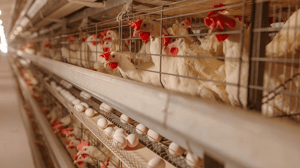USDA rolls out sweeping new organics rulesUSDA rolls out sweeping new organics rules
The updates are designed to prevent fraud in the complex organic supply chain, the agency said.

The U.S. Department of Agriculture on Thursday unveiled sweeping new rules around the sale, production and handling of all products labeled “organic,” a move designed to prevent fraud across the supply chain.
The rules, which will be implemented in March 2024, affect all retailers that sell organic products, the agency said, as well as businesses that import or trade such products, producers of organic items and others.
Industry group the Organic Trade Association called the updates “the biggest change to organic regulations since the creation of USDA’s National Organic Program,” more than 20 years ago.
“The rule closes gaps in current organic regulations and builds consistent certification practices to prevent fraud and improve the transparency and traceability of organic products,” the association said in a statement. “Fraud in the organic system—wherever it occurs—harms the entire organic sector and shakes the trust of consumers in organic.”
The USDA’s updates amend existing rules under the Organic Foods Production Act of 1990, the agency said, and are designed to create consistent certification practices, improve traceability and assure customers that “organic products meet a robust, consistent standard and reinforce the value of the organic label.”
“The need for this rulemaking is driven by organic market growth and increasingly complex organic supply chains,” the USDA said. “Today’s organic market is characterized by long—and often global—supply chains where organic products are handled by many businesses before reaching the consumer. Often, these businesses are not certified organic—and therefore have no oversight from the USDA or USDA-accredited certifying agents.”
The new rules will ensure that consumers can trust the organic label “due to a rigorous oversight system that operates globally,” the USDA noted.
The updates are complex and extensive. New rules include:
Certification of more of the businesses along the organics supply chain
Certification for all organic imports
Increased inspections of organic facilities
Enhanced labeling for traceability
Establish training requirements for agents who certify organic goods
Require operators to implement improved record keeping and fraud-prevention processes
Not only do grocers carry organic products, but many are broadening their private-label lines of natural and organic foods and beverages as consumers seek out lower-priced items.
The Kroger Co. earlier this month marked the 10th anniversary of its Simple Truth and Simple Truth Organic labels. The brand has expanded from 30 product categories to more than 1,500 items, growing to $3 billion in annual sales, the grocer said.
About the Author
You May Also Like






